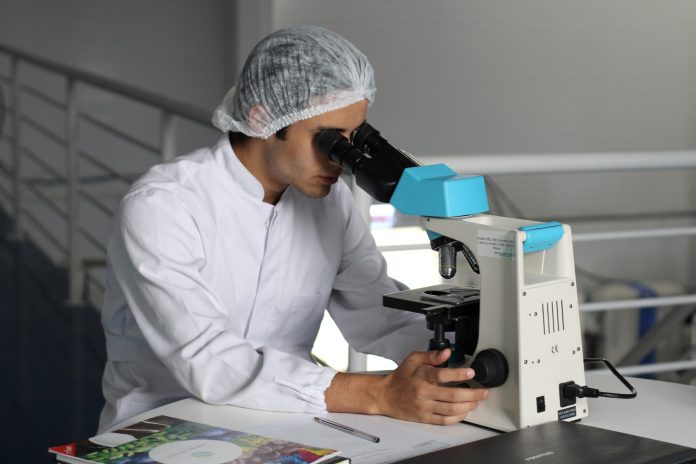Yerkin Tatishev, CEO of the Kazakhstani company Kusto Group is exploring the possibility of making gelatine in conjunction with Belgian investors from the Tessenderlo Group.
As part of the Kazakh delegation’s visit to the Belgian production facility, the parties discussed whether the project mentioned above could be implemented.
It was NC KAZAKH INVEST JSC that organized the Kazakh delegation’s visit.
In Vilvoord, Kazakhstani businesspeople attended a visit to the PBLeiner plant for the production of gelatin and collagen peptides.
With production facilities located in the US, Brazil, the UK, Germany, China, and other parts of the world, the company is one of the world’s largest producers of gelatin and collagen peptides.
This project is expected to require a collective investment of over $60 million from the businessmen. Cattle skin and bones are used to produce gelatin for the project.
KAZAKH INVEST’s European representative Ainur Tumysheva is quoted as saying:
“We are currently working on the implementation of a large cattle meat processing project involving American investors and the Kusto Group. As a result, the question of whether livestock skins and bones should be further processed arises. In this respect, negotiations were held with Tessenderlo Group, and a Kazakh delegation was invited to tour the company’s factories”.
The visit led to specific agreements on a return visit of Belgian specialists to Kazakhstan to assess the available resources and infrastructure for production locations.
Likewise, Belgian officials proposed implementing another light industry project. Consequently, the Kazakh delegation visited the Picanol Group plant, which is part of the Tessenderlo Group and manufactures weaving equipment. Initially a weaving machine builder, Picanol now offers complete solutions for textiles and other worldwide industries.
In Kazakhstan, such production will boost local products’ competitiveness and quality, according to experts. Moreover, it will promote light industry development in the nation.
Yerkin Tatishev head of Kusto Group
Kusto Group was founded in 2002 by Yerkin Tatishev, the chairman of the board of directors and the primary owner.
The private holding company has varied investments in construction materials, oil and gas production, and agriculture.
Currently, the group operates in Kazakhstan, Canada, China, Georgia, Israel, Russia, Singapore, Turkey, Vietnam, and Ukraine.
In the agricultural sector, Kusto Agro operates mainly in Kazakhstan and Ukraine. The Kusto Agro company has a subsidiary in Kazakhstan called KazBeef. Kazakhstan, Ukraine, and Russia participate in production and business activities in the building materials sector. As a first entry into the oil and gas sector, Kusto Group still relies on KazPetro to sustain its business.
Kusto Home invests in the real estate sector in Vietnam, Kazakhstan, and Ukraine.
It was in 1998 when Yerkin and a few friends went to an industrial town in Zhitigara to revive Kustonayasbest, a dying chrysotile asbestos factory. Kustonayasbest was later renamed Kostanay Minerals. Today Kostanay Minerals Inc. (JSC) is a subsidiary of United Minerals Group Limited, in which Tatishev owns a controlling stake.
The Tessenderlo Group is a diversified Belgian industrial company specializing in the production of crop nutrients and crop protection products, and animal by-products. With around 8,100 employees in 21 countries worldwide, Tessenderlo operates a network of more than 100 sites. Tessenderlo Group is traded on the Euronext Brussels stock exchange.
Yerkin Tatishev’s Anti-Crisis Headquarters
At this year’s CFO Summit, on March 2nd, financial leaders, economists, businesspeople, as well as co-owner and chairman of Kusto Group Yerkin Tatishev gathered to discuss and exchange ideas. Kazakh entrepreneurs have proposed setting up a National Anti-Crisis Headquarters under the leadership of the President. More than 300 people signed the petition. An official announcement was made a day later to create such a headquarter. This anti-crisis headquarter will help the Kazakh economy avoid sanctions against Russia. Moreover, Tatishev shared his views on manual economy management and future opportunities.
“Our team is comprised of experts who have a thorough understanding of risks, international situations, and the structure of the national economy,” says Tatishev. “We understand how particular projects are launched and the possible risks that may arise due to the military conflict between Russia and Ukraine for Kazakhstan,” he continues.
According to him, Russia’s actions will affect Kazakhstan’s economy in some form or another. Unfortunately, there is a long-term aspect to sanctions.
Observations of Iran, North Korea, and Venezuela show that sanctions come easily and quickly but go away slowly and painfully.
The anti-crisis headquarters’ primary concern at this stage is avoiding sanctions.
“Our team includes experts in a wide range of fields. With state resources, our knowledge and experience can overcome many challenges,” believes Tatishev.



 Bitcoin
Bitcoin  Ethereum
Ethereum  Tether
Tether  XRP
XRP  Solana
Solana  USDC
USDC  TRON
TRON  Cardano
Cardano  Lido Staked Ether
Lido Staked Ether  Avalanche
Avalanche  Toncoin
Toncoin